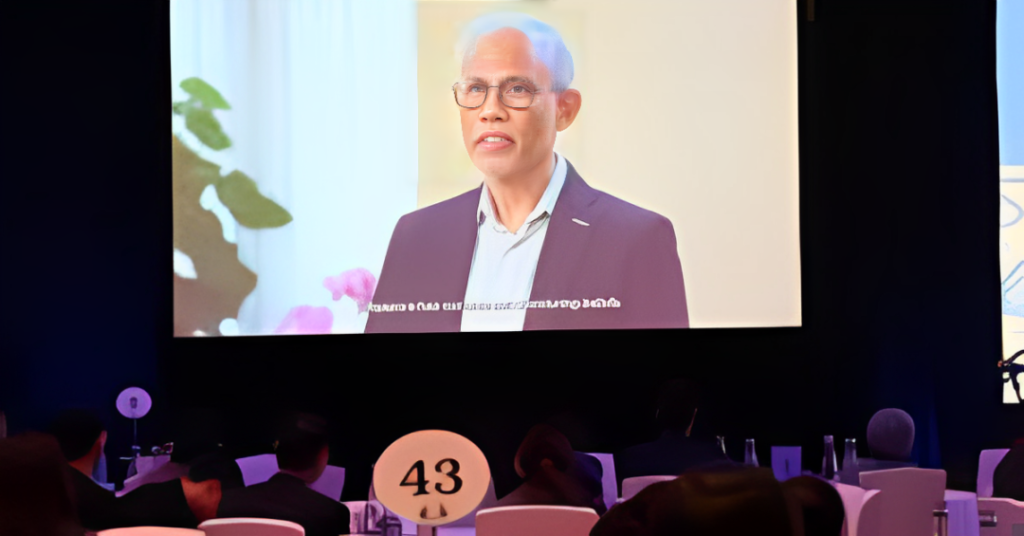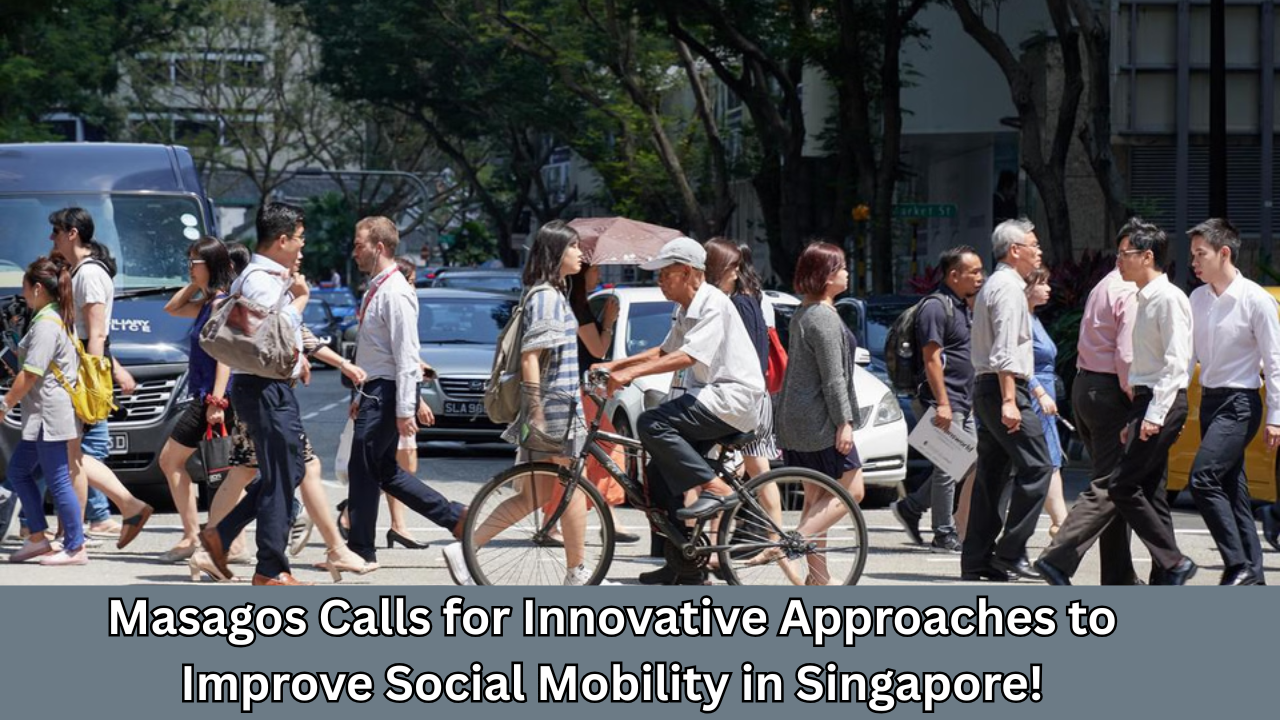Upward social mobility, the ability for individuals to improve their social and economic position in society, is becoming more challenging in Singapore, Minister for Social and Family Development Masagos Zulkifli said on April 30, 2025. With global trade tensions, technological changes, and other disruptions threatening stability, new approaches may be necessary to help Singaporeans continue to progress in the evolving world.
In his closing speech at the 2025 International Conference on Societies of Opportunity, Mr. Masagos emphasized that the methods and strategies that have worked for the country in the past might no longer be effective for the future. The Minister acknowledged that Singapore has thrived due to its focus on meritocracy, self-reliance, and the building of resilient families. Still, a shift in approach might be required to stay ahead of emerging challenges.
“We need to boldly make changes, even revisiting fundamental principles if need be,” Mr. Masagos said. His message at the conference called for policymakers, academics, and the public to rethink how social mobility can be achieved amidst the changes taking place in the world.
The two-day conference, organized by the Ministry of Social and Family Development (MSF) and the Institute of Policy Studies, brought together scholars and policymakers to share insights on social mobility. As global disruptions intensify, ranging from economic tensions to technological advancements that displace jobs, the conference discussions aimed to assess how Singapore can address these challenges.
The Need for Change in Social Mobility Approaches
Mr. Masagos delivered his speech via a video recording, highlighting that Singapore has been guided by enduring beliefs that have withstood the test of time. The country’s meritocratic system, which rewards hard work and talent, has allowed Singaporeans from all walks of life to progress and build their futures. The system has created a level playing field where individuals who work hard can expect success.
However, he pointed out that while a meritocracy is essential, excessive competition can have adverse effects. “Excessive competition can lead to stress and strained social ties,” Mr. Masagos noted. In addition, the pressure to succeed can sometimes cause people to focus solely on their personal goals, overlooking the larger role of the community and the support of others.

Self-reliance, another cornerstone of Singapore’s social policy, can also have negative effects when pushed too far. Mr. Masagos stressed that the idea of “I am who I am solely because of my own efforts” is a myth. While personal responsibility and self-reliance are essential, one must also recognise the help and support of others in achieving success.
Mr. Masagos acknowledged that Singapore’s changing demographics and the global environment have placed strains on the family unit, which forms the backbone of society. An ageing population, smaller family sizes, and the economic challenges of modern life have made it more difficult for lower-income families to break out of the poverty cycle. However, the Minister emphasised that this does not mean Singapore should give up on social mobility; rather, the country needs to adapt and be proactive in addressing these emerging challenges.
Enduring Principles that Will Guide the Future
Despite the need for new approaches, Mr. Masagos reaffirmed several enduring principles that will continue to guide Singapore’s strategy on social mobility. The first principle is that “strong families make strong societies.” Strong, resilient families are essential for creating an environment where individuals can thrive. Policies will continue to focus on strengthening family bonds, supporting caregivers, and ensuring that families are equipped to handle life’s challenges.
The second principle is the recognition of the diverse strengths of each individual and their respective families. Singapore’s policies focus on identifying the unique strengths of families and communities, then leveraging those strengths to achieve greater outcomes. Mr. Masagos pointed to the MSF’s ComLink+ scheme as an example of this approach.
The ComLink+ Scheme provides targeted support to low-income families. These families receive financial incentives and other forms of support, such as educational assistance, job placement programs, and homeownership programs. The aim of ComLink+ is not only to help families meet their basic needs but also to provide them with the tools to build long-term resilience. Each family in the program is assigned a family coach, who works closely with them to identify their strengths, set goals, and offer guidance to help them succeed.
Mr. Masagos added that while social assistance is essential, enhancing individual and family resilience is equally important. The goal is not just to provide for immediate needs but to help families overcome long-term challenges and become self-sufficient.
The Importance of Early Intervention
Another key principle Mr. Masagos emphasized is the importance of starting early. “The earlier we start, the better,” he said. Proactively addressing social issues before they escalate is essential to preventing more complex problems later on. This is especially true for children from disadvantaged backgrounds.
One program that exemplifies this approach is the KidStart program, which targets lower-income families with children up to the age of six. Through KidStart, parents are supported in providing their children with the necessary resources and opportunities for early childhood development. This early intervention helps ensure that children from disadvantaged families have a stronger start in life and are less likely to face barriers later on.
Additionally, Singapore’s commitment to providing affordable and high-quality preschool education ensures that children from lower-income families can compete on an equal footing with their wealthier peers. This helps prevent the widening of the educational gap between children from different socio-economic backgrounds.
Building Self-Reliance with Support
While government efforts are essential, Mr. Masagos also stressed the importance of individual self-reliance. Social mobility cannot thrive if individuals do not take responsibility for their own growth and development. But, as Mr. Masagos noted, “self-reliance is a muscle that must be exercised.” Support from the government, community groups, and businesses is essential, but individuals must also take initiative to improve their lives and the lives of those around them.
In addition to government policies, businesses and community organizations also have a critical role to play. Mr. Masagos urged companies to contribute to boosting social mobility by providing employment opportunities, training programs, and other forms of support. He also emphasized the importance of fostering a collaborative effort among all sectors of society to ensure that social mobility continues to be a reality for future generations.
A Collective Effort
Social mobility is not just the responsibility of the government; it is a collective effort that requires input and collaboration from every part of society. From policymakers to community groups to businesses, all sectors must come together to create the conditions for success and ensure that opportunities for social mobility are accessible to everyone.
Mr. Masagos concluded by saying that while the government can provide the necessary infrastructure for social mobility, it is the combined efforts of the community that will ultimately determine success. “Together, we can ensure that no one is left behind, and that everyone has a fair shot at success.

Deepak Grover is a dedicated content writer at OTE News, specializing in government affairs, public policy, and current events. With a keen eye for detail and a passion for factual reporting, he ensures readers receive accurate and insightful news. Deepak holds a degree in Political Science and has experience in research-driven journalism.
When not writing, he enjoys reading historical books, exploring hiking trails, and staying updated with global political trends. His commitment to ethical journalism makes him a trusted voice at OTE News.




